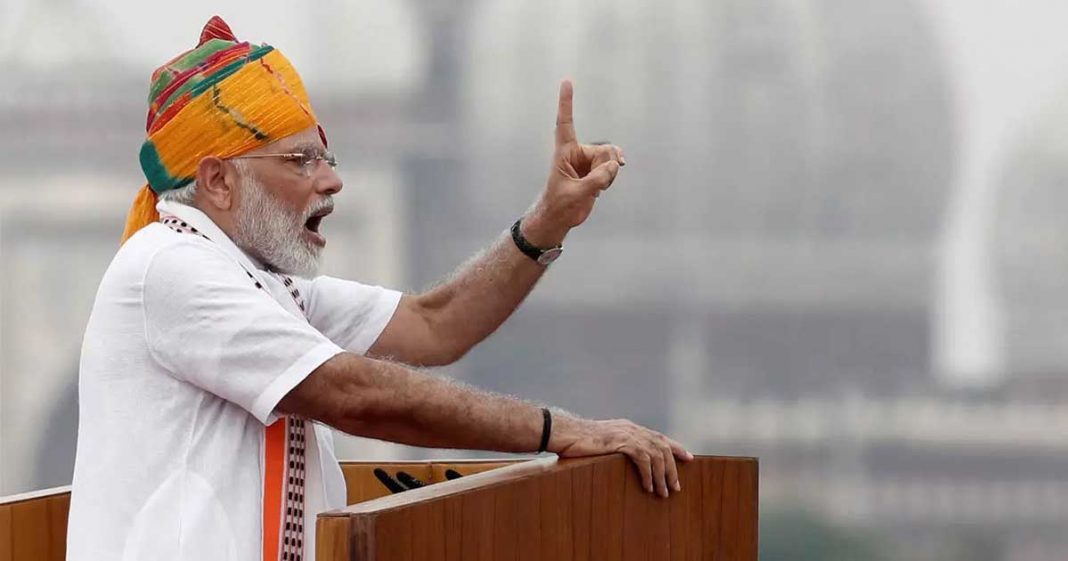As India is losing its democratic credential under the leadership of Prime Minister Narendra Modi, the experts from across the world are attempting to make sense of the post-democratic Indian regime. Prior to the election of PM Modi, Indian public intellectuals in the west had strong footing to stand up and shape the anti-Pakistan narrative, particularly in the post-9/11 scenario. However, with the arrival of Modi, India is losing not only friends but the entire idea of a progressive, secular India has been trampled.
Modi govt destroyed India's image, deterred investors: Rahul Gandhi@CongressSevadal@INCJharkhand@INCIndiahttps://t.co/rbt2RiqGzB
— Jharkhand Congress Sevadal (@SevadalJH) January 29, 2020
Saleha Anwar, a Lahore-based political analyst, told GVS that “India will never be the same even if PM Modi goes away or Congress comes in”. “Modi is working on a project to turn into fascist Hindustan which means developing a cultural discourse backed by political support where only Hindus have a right to live and rule,” she added. Ms Anwar believes that the historical idea of India has smartly been replaced with Modi’s idea of Hindustan.
Is the world denouncing India?
As India has lost its democratic sheen, maintain analysts, it is on its way to international isolation. It is worth noting that the US Commission on International Religious Freedom (USCIRF) has re-entered India into its list of ‘Country of Particular Concern (CPC)’ because of the Modi government’s policies against the Muslims.
In this article that I have co-authored with Haider Abbas Rizvi, we show that Muslim countries with which India had increasingly good relations have become less friendly because of the situation of its Muslim minority and recent developments in Kashmir. https://t.co/l2XmS2cnPA
— Jaffrelot Christophe (@jaffrelotc) April 22, 2020
The report recommended the US government to impose targeted sanctions on Indian government agencies and officials responsible for severe violations of religious freedom in India by freezing those individuals’ assets and/or barring their entry into the United States under human rights-related financial and visa authorities, citing specific religious freedom violations.
Read More: Delhi Burns: Anti-Muslim Pogrom at the hands of Hindu Fascists
In India, there is a relentless anti-Muslim and anti-Islam campaign even at the government level in the times of COVID-19. Rana Ayyub, an investigative journalist, wrote in the Washington Post, “Muslims became the sole culprits responsible for the spread of the coronavirus in India.”
The Guardian reports, “Muslims have now seen their businesses across India boycotted, volunteers, distributing rations called ‘coronavirus terrorists’, and others accused of spitting in food and infecting water supplies with the virus. Posters have appeared barring Muslims from entering certain neighborhoods in states as far apart as Delhi, Karnataka, Telangana, and Madhya Pradesh.”
Resultantly, India’s friends, some countries from the Muslim world, are not issuing strongly-worded statements to not only condemn the violence but also to urge the government to curb it. As Jyoti Malhotra, a prominent Indian Editor noted: “India’s carefully cultivated Gulf policy has been at risk of unravelling over the past fortnight, with the Organisation of Islamic Cooperation, the Kuwaiti government, a UAE royal princess, and the Arab intelligentsia decrying hate speeches by Indian nationals accusing the Tablighi Jamaat of deliberately exacerbating the coronavirus pandemic as well as a crude tweet by a BJP MP on the sexual impulses of Arab women”.
India: A failing economy?
Analysts believe that India under Modi has become a battlefield between Muslims and Hindus sending economy on second in the list of priorities. This is likely to be the biggest challenge for the Indian liberal and secular voices to maintain order in a highly diverse and complex society.
The Belgium based International watchdog, CADTM (Committee for Abolition of Illegitimate Debt) in June 2019 stated that the corporate debt in India was spiralling up and it might not be long when it reaches alarming levels. “Metal, power, and telecommunications account for 40pc of the unserviceable debt.”
Read More: Islamophobia in India: New attacks on Indian Muslims
According to Rebecca Bundhun, India urgently needs to find solutions to address the credit crunch in the country that is hurting businesses and crimping growth in Asia’s third-largest economy. She quotes Mahesh Singhi, the founder and managing director of Singhi Advisors, an investment bank based in Mumbai, as saying: “The crisis needs to be tackled on a priority basis…If left unchecked, we are looking at massive layoffs across industries, triggering a large-scale job [market] crisis, contraction in consumer demand, and an investment slowdown.”
As reported by India Today, more than 12,000 farmers committed suicide in Maharashtra between 2015 and 2018. The National average of reported cases is 16,000 suicides every year, which means about 40 farmers a day.
Former Indian finance minister Yashwant Sinha recently warned that India’s economy is in a “very deep crisis”, witnessing “death of demand.” He said the official data showed that India’s second-quarter GDP growth had slumped drastically to ‘4.5 per cent’ and is at its lowest in over six years.
As the world is denouncing India because of its openness to authoritarian alternatives, its economy is also failing. The world’s largest democracy is likely to become the world’s largest autocratic regime in modern times.














